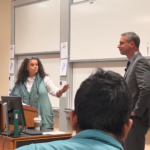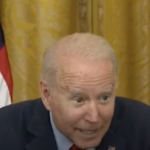Sunshine State Reforms Shed Light on Improving Teacher Quality
On Monday, the Platte Institute released a study discussing teacher selection and evaluation policies in Nebraska, and the basic conclusion was this: Teacher quality matters.
Nebraska policymakers are currently revising performance frameworks to improve educator effectiveness and student learning. This is an important first step since the National Council on Teacher Quality gives Nebraska an overall teacher policy grade of D-, which reflects failing marks in critical areas such as delivering well prepared teachers, identifying effective teachers, and firing ineffective teachers.
The cost to students, states, and taxpayers of ineffective teachers is substantial. Research shows quality time with good teachers-not quantity time with ineffective ones-is what distinguishes economic winners and losers. An above-average teacher can add more than $400,000 across a class of 20 students’ combined future lifetime earnings each year. Conversely, an ineffective teacher can reduce those students’ earnings by as much. But students are not the only ones who pay the price for ineffective teachers.
Failing to raise American students’ performance to levels achieved by their international peers costs taxpayers between $513 billion and $1.3 trillion annually in terms of lower GDP. Replacing just 2 percent of ineffective teachers could yield a $41 trillion gain in U.S. GDP over the next generation. Replacing 10 percent of ineffective teachers could yield a $100 trillion gain.
Ineffective teachers also contribute significantly to persistent achievement gaps that result in what has been called “the economic equivalent of a permanent national recession.” Not closing those achievement gaps costs the U.S. GDP as much as $2.3 trillion-about $7,500 per person. Importantly, achievement gaps are not limited to poor children in poor neighborhoods. They also affect “most children in most schools,” according to leading experts. One state bucking the trend is Florida.
Over the past decade, five Sunshine State reforms working in concert have helped raise achievement and graduation rates dramatically across student sub-groups:
1) Allowing multiple teaching paths to attract talented professionals to the classroom
2) Incentivizing student success through a professional pay structure
3) Defining teacher effectiveness in terms of student learning
4) Making student learning a core measure of teacher evaluations
5) Bringing teacher contracting into the 21st Century
These and other reforms initiated in 1998 make up what is commonly referred to as the “Florida Formula”-considered one of the most impressive public policy successes of the past decade. In 1998 Florida students scored at the bottom of the nation in student achievement, and nearly half of Florida fourth-graders were functionally illiterate. By 2009, Florida’s fourth grade Hispanic students were reading as well or better than the statewide average for all students in 31 states. Meanwhile, African-American fourth graders in Florida were reading as well or better than the statewide average in eight states.
Strong teacher selection and evaluation policies are a cornerstone of Florida’s success. Nebraska could realize similar success if policymakers follow the Sunshine State’s lead.
The full policy study may be viewed here.
Dr. Vicki Alger, Ph.D., is the former Education Policy Director at the Pacific Research Institute and the Goldwater Institute. She is currently President and CEO of Vicki Murray & Associates, LLC, and is the Director of the Women for School Choice Project at the Independent Women’s Forum and a Research Fellow at the Independent Institute. This article and accompanying study were written on behalf of the Platte Institute for Economic Research, a free market think tank based out of Omaha, Nebraska.




